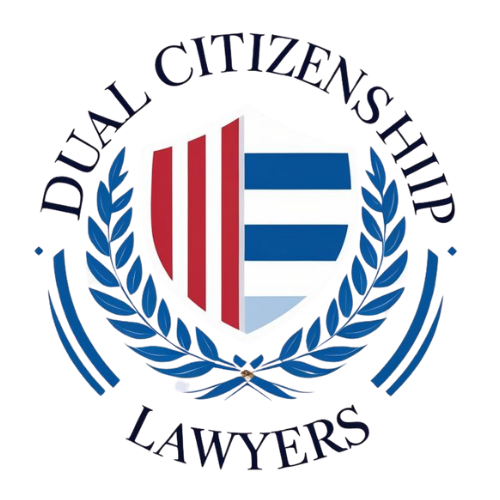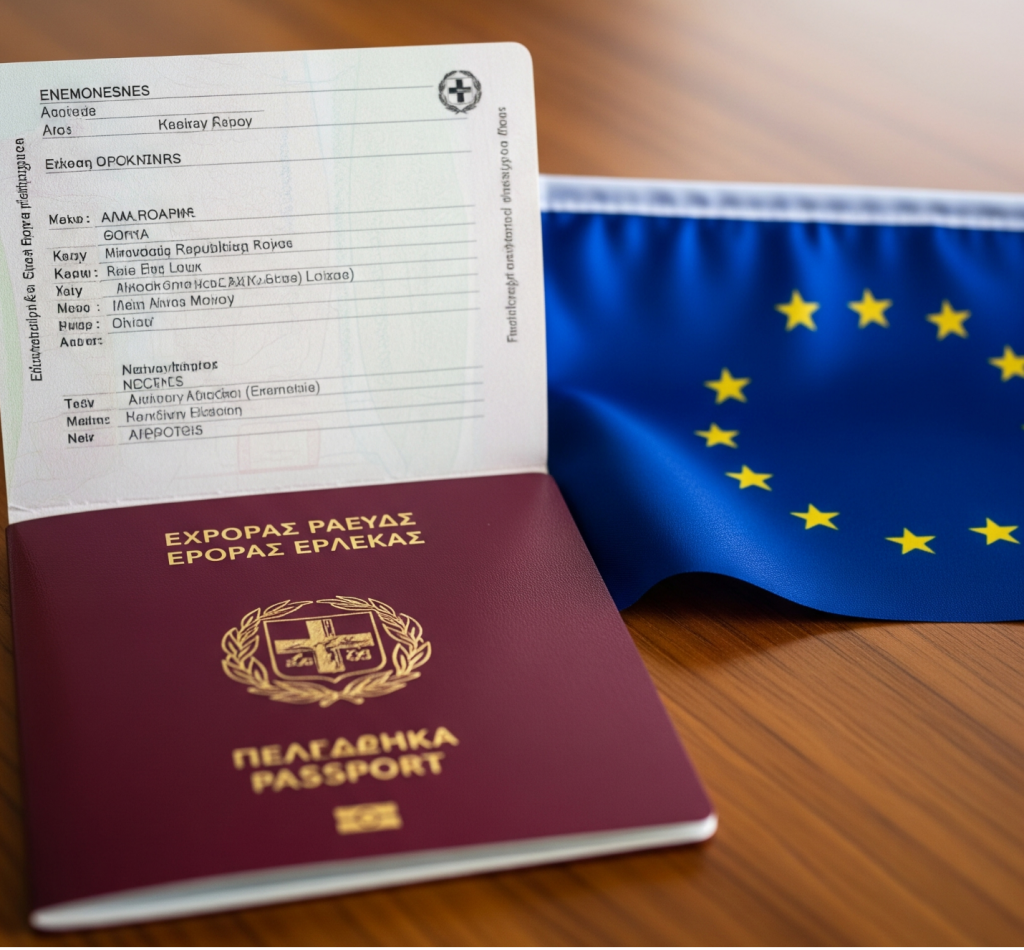Naturalization (acquisition of citizenship/nationality) is the process by which a state grants citizenship to an individual who previously held a different nationality or no nationality at all. Upon naturalization, the individual becomes legally assimilated with other citizens of the state, acquiring the same rights and obligations. Although the process may seem complicated, a good Greek immigration lawyer will help you easily navigate every step.
The concept of naturalization in Greece for foreign nationals includes non-ethnic foreign nationals. This includes European Union citizens, citizens of Third Countries, and stateless persons who do not have Greek ancestry and reside legally and permanently in Greece.
Greek Law 4735/2020, effective from April 1, 2021, introduced substantial changes to the naturalization system. For a foreign citizen to be naturalized, they must meet conditions of the Greek Citizenship Code.
Formal Requirements for Naturalization in Greece
To apply for Greek citizenship through naturalization, you must meet the following formal criteria:
- Be an adult.
- Not having been irrevocably convicted for an intentional offense, committed within the last 10 years before the naturalization application with a sentence exceeding 1 year.
- Not be subject to deportation or other pending issues related to their legal stay in Greece.
- Have legally resided in Greece for seven (7) consecutive years before submitting the naturalization application, or at least five (5) consecutive years of legal residence in Greece if these were completed by 24/03/2010, or at least three (3) years of residence in Greece if the person:
- Is a citizen of an EU member state.
- Is the spouse of a Greek national with a child.
- Has parental custody of a Greek citizen child.
- Is a recognized political refugee or stateless person.
- Hold one of the following valid residence permits:
- Long-term residence permit.
- Certificate or other residence title granted to citizens of EU member states.
- Card or other residence title granted to family members of a Greek citizen or an EU member state citizen, or parents of a minor Greek national.
- Recognized political refugee card or subsidiary protection status, or a family member of such a cardholder.
- Travel documents or a special card granted by a Greek authority regarding the status of stateless persons.
- Card or other residence title for a Greek expatriate (homogenis) of any type, except for a Special Expatriate Identity Card.
- Second-generation residence permit.
- Indefinite or ten-year duration residence permit.
- Residence permit for investment activity (Golden Visa).
Substantive Requirements for Naturalization in Greece
Learning the Greek Language and Culture
Alt Description: A diverse group of students in a classroom, actively engaged in a Greek language and culture lesson, representing the integration aspect of naturalization.
The applicant for Greek citizenship to get a Hellenic Nationality must also meet these substantive conditions:
- Possess sufficient knowledge of the Greek language.
- Have sufficient knowledge of Greek history and geography, Greek culture and customs, and the functioning of the country’s political institutions.
- Be capable of actively and substantively participating in the political life of the country.
- Be smoothly integrated into the economic and social life of the country, having made Greece the continuous center of their life activities.
- Not pose a threat to public order or national security.
The applicant must obtain a Certificate of Adequacy of Knowledge for Naturalization (PEGP) through written examinations held twice a year to verify knowledge of the Greek language, history, culture, geography, and political institutions. EXCEPTIONS apply for those who are exempt due to attendance at a Greek school or university.
Certain presumptions of economic integration must also be met, including income criteria and fulfillment of the applicant’s tax and social security obligations. The applicant must demonstrate a sufficient annual income without burdening the country’s social welfare system. The sufficiency of annual income is related to their annual earnings.
Finally, presumptions of socio-economic integration include:
- Formation of a family bond with a Greek citizen.
- Attendance at a Greek school.
- Professional training.
- Participation in volunteer activities and events.
- Continuous residence in the country, which implies strong ties with Greece and that the applicant has made it the permanent center of their life activities.
Greek Citizenship by Naturalization Process: Application and Required Documents
The naturalization application is submitted to the Citizenship Service of the Ministry of Interior in the applicant’s place of residence and must be accompanied by the following documents:
- Exact copy of a valid foreign passport or other identification document.
- Valid legal residence permit.
- Certificate of Adequacy of Knowledge for Naturalization (PEGP).
- Original birth certificate, duly legalized and officially translated, or another equivalent certificate provided by the legislation of the country of first nationality. If the foreign national is a beneficiary of international protection – a refugee, or has been granted subsidiary protection status, or is stateless and unable to provide a birth certificate, the act of their recognition as a refugee, the granting of subsidiary protection status, or the relevant stateless person’s card, respectively, will suffice. If the foreign national was born in Greece, a birth certificate from the Greek Registrar is sufficient.
- Tax assessment notes or administrative tax determination acts for the financial years corresponding to the required years of prior legal residence in the country, on a case-by-case basis, demonstrating the applicant’s tax obligation as a resident of Greece.
- Social Security Number (AMKA).
- Electronic fee payment (paravolo) of five hundred and fifty (550) euros. For the resubmission of a naturalization application in Greece, the fee is two hundred (200) euros. Greek expatriates, citizens of an EU member state, recognized political refugees, and stateless persons pay a fee of one hundred (100) euros for each naturalization application.
The Naturalization Examination Process in Greece

Map of Greece and Cyprus
A geographical map highlighting Greece and Cyprus, indicating the target regions for citizenship and immigration services.
A foreign national wishing to be naturalized as a Greek citizen is invited to a written examination of the Greek language and culture. This will require a payment of a 150 euro fee.
- Successful participation in the exams is achieved when the candidate scores seventy percent (70%) of the maximum possible score.
- A Certificate of Adequacy of Knowledge for Naturalization (PEGP) is issued by the General Secretariat for Citizenship after successfully passing the above examination.
- Exemptions from obtaining the PEGP apply to those who have completed middle school (gymnasio) or high school (lykeio) in Greece. This also includes those who have graduated from a Greek-language program of a Greek Higher Education Institution (AEI) or have obtained a postgraduate or doctoral degree from a Greek-language program of a Greek AEI.
- The Regional Directorate of Citizenship will invite the applicant for an interview to ascertain their integration into the economic and social life of Greece and ability to participate as a citizen.
In case of a negative decision, the applicant may appeal to the Minister of Interior or the Administrative Courts. Alternatively, you can resubmit a Greek citizenship application by naturalization after one year from the date of the negative decision, but you will have to pay the required fee again.
Our law firm, staffed by a team of specialized Greek immigration lawyers, specializes in immigration law. We will assist you in promptly and professionally resolving your case for obtaining Greek Citizenship. This involves overcoming the complex bureaucratic procedures inherent in these cases. For more information regarding the process, please contact us. Our lawyers in Greece will take care of all the procedural requirements to achieve the best possible outcome.

